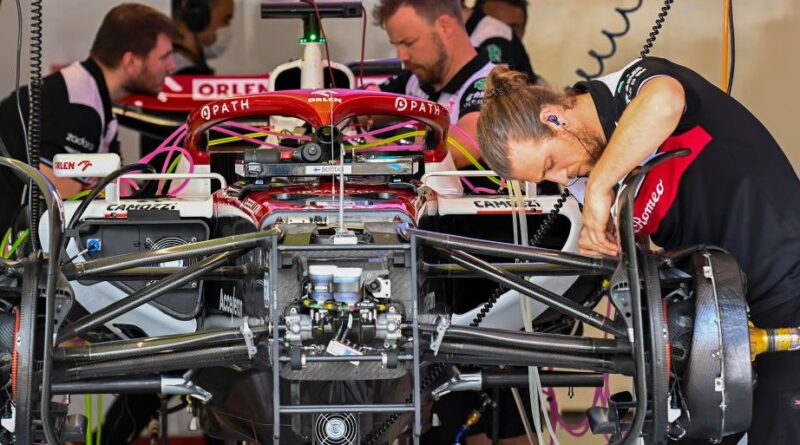Advanced Manufacturing Powers F1
In the world of F1, every technological advancement, no matter how big or how small, can mean the difference and give drivers an edge around the track. So F1 teams pursue innovation at all costs. That means implementing the most advanced manufacturing technologies. F1 teams create cars from more than 14,500 individual components, and those components are products of both computer aided design and computer aided manufacturing. Advanced Manufacturing Powers F1.
But perhaps the most impactful manufacturing advancement for F1 has come in the form of 3D printing. It quickly became a powerful tool for testing cars, allowing F1 teams to “dramatically reduce the lead times of our aerodynamic wind tunnel components and projects,” as McLaren Racing’s head of additive manufacturing, Tim Chapman, said recently.
Additive manufacturing has gone beyond prototyping, as of late, and it’s now being used to create cars and power units. “Stereolithography technology and materials have evolved, changing the way we use it,” Chapman said. “We do not just manufacture prototypes anymore; we now produce many full-scale components and full-size tooling.”
F1 innovation teams are singularly focused on making their cars faster and equipping their drivers with the best chance to win. But their efforts often trickle outside of the sport into everyday society. Here are a few examples:
Improving Public Transit
In 2009, F1 engineers developed the kinetic energy recovery system, or KERS. The system allows automobiles to capture energy from their brakes and use it to propel the vehicle. It has since found use cases in everything from hybrid cars to city buses. KERS is at its core a green technology, allowing cities to cut down on their carbon footprint.
Facilitating 5G
Technology developed to equip F1 teams with reliable connectivity is now moving into the mainstream, as well. Fleet Connect is helping connected road, rail, and underground transportation systems stay connected with reliable 5G infrastructure. The Singapore Mass Rapid Transit system is among the agencies deploying the tech.
Boosting Air Traffic Control
F1 technology is helping air traffic controllers facilitate more efficient air travel. On the racetrack, the technology developed by McLaren runs thousands of simulations every second to monitor the speed and location of every car on the circuit. McLaren spun off McLaren Applied Technologies to take this tech to other industries, and the air traffic control industry has been a beneficiary. It gives air traffic controllers continuously updated information on how departures and arrivals are shaping up, as well as where to expect delays.
Powering More Efficient Superstores
Computational Fluid Dynamics (CFD) helps racing engineers better understand airflow so they can optimize performance. But the technology is spilling out into other uses, including the refrigerator aisles at your local supermarket. CFD helps fridge systems leverage low-temperature airflow and reduce cold-wash waste, ultimately decreasing the amount of energy grocery stores spend keeping these aisles cool. An ex-Formula 1 technical director named Nick Wirth helped develop the technology. “We built a fridge simulation with a model using 300 million cells, and that’s probably about the cell count that’s used in F1 now,” Wirth says. “So, it’s a very, very sophisticated model of a fridge.”
What Manufacturers Can Take from F1
Many manufacturing leaders and companies have their heads down as they navigate a new, technology-centered era for the industry. We tend to look in the same places for inspiration. Whether it’s training courses, conferences, peer-to-peer learning, or something else.
But you never know where you may find the inspiration that will set you down a lucrative new path. The power of F1 is that it provides us a glimpse of how advanced manufacturing can transform our world both on and off the track. Next time you’re feeling low on energy, flip on a race and take a turn marveling at the engineering prowess that underpins F1 and the innovative technology mindset we all need to win.
Source:
Advanced Manufacturing Powers F1
How Manufacturers Can Take Inspiration From The World Of F1
https://www.techedmagazine.com/category/news-by-industry/transportation-education/

